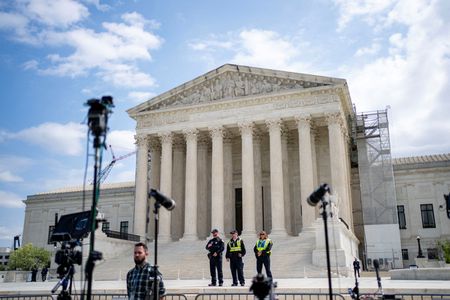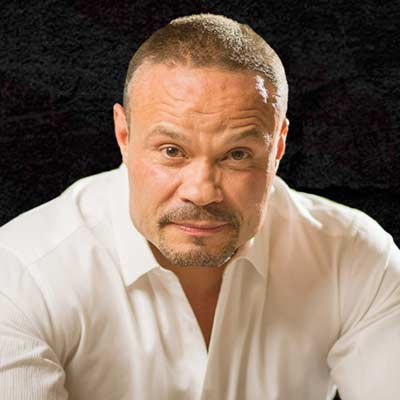By Will Dunham
WASHINGTON (Reuters) – During arguments before the U.S. Supreme Court on Donald Trump’s claim of presidential immunity from prosecution, two starkly different views of the consequences were on display on Thursday.
Trump’s lawyer, D. John Sauer, painted a dire picture of presidents facing “de facto blackmail and extortion by his political rivals while he is still in office” because of the threat of future prosecution without the immunity the former president is seeking.
Michael Dreeben, arguing on behalf of Special Counsel Jack Smith, said the “absolute immunity” sought by Trump “would immunize former presidents for criminal liability for bribery, treason, sedition, murder – and, here, conspiring to use fraud to overturn the results of an election and perpetuate himself in power.”
The justices heard arguments in Trump’s appeal after lower courts rejected his claim of presidential immunity in a criminal case brought against him by the special counsel on four charges related to his efforts to overturn his 2020 election loss. Trump is the Republican candidate challenging Democratic President Joe Biden in the Nov. 5 U.S. election in a rematch from four years ago.
Liberal Justice Ketanji Brown Jackson noted the conflicting concerns raised by giving presidents immunity. Without it, presidents could be concerned about being investigated, which to some extent could chill their ability to “do what they want in office,” Jackson said.
“And that’s a concern on one side,” Jackson said.
But Jackson expressed worry that immunity would leave a president “unbounded while in office.”
“The most powerful person in the world with the greatest amount of authority could go into office knowing that there would be no potential penalty for committing crimes. I’m trying to understand what the disincentive is from turning the Oval Office into the seat of criminal activity in this country,” Jackson told Sauer.
Sauer raised hypothetical scenarios involving past U.S. presidents being charged for official actions taken in office.
He asked whether George W. Bush could be prosecuted for obstructing an official proceeding for allegedly lying to Congress to justify the Iraq war, or Barack Obama charged with murder for killing U.S. citizens abroad with drone strikes, or Biden charged with unlawfully inducing immigrants to enter the country illegally, based on his border policies.
“The answer to all these questions is no,” Sauer said.
“If a president can be charged, put on trial and imprisoned for his most controversial decisions as soon as he leaves office, that looming threat will distort the president’s decision making precisely when bold and fearless action is most needed,” Sauer added.
Dreeben sought to downplay those worries.
“I do think that there are layered safeguards that the court can take into account that will ameliorate concerns about unduly chilling presidential conduct,” Dreeben responded. “That concerns us. We are not endorsing a regime that we think would expose former presidents to criminal prosecution in bad faith, for political animus, without adequate evidence. A politically driven prosecution would violate the Constitution.”
Conservative Justice Samuel Alito asked Sauer whether “the very robust form of immunity” he was requesting was really necessary to protect “the proper functioning of the presidency” – or if something short of absolute immunity would suffice.
But Alito also picked up on Sauer’s concerns. Alito said that if an incumbent president who loses a hotly contested re-election bid, as Trump did in 2020, knows he may be “criminally prosecuted by a bitter political opponent – will that not lead us into a cycle that destabilizes the functioning of our country as a democracy?”
Liberal Justice Sonia Sotomayor added to that.
“Justice Alito went through, step by step, all of the mechanisms that could potentially fail. In the end, if it fails completely, it’s because we destroyed our democracy on our own, isn’t it?” Sotomayor asked Dreeben.
“It is, Justice Sotomayor,” Dreeben responded.
(Reporting by Will Dunham; Editing by Daniel Wallis)
Brought to you by www.srnnews.com








